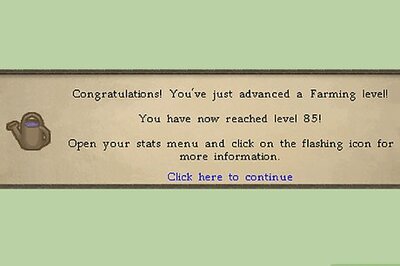
views
Silicon Valley: While Google's phenomenal growth may by the envy of many, Microsoft Corp CEO Steve Ballmer criticised the Internet firm for trying to grow too fast.
In a presentation at Stanford University's Graduate School of Business, Ballmer said Microsoft went from 24 to 75,000 people in nearly three decades, while Google had become a very large company in a fraction of that time. "They are trying to double in a year. I think that's
“Insane, in my opinion," Ballmer said. Microsoft, with a more managed growth, had been digesting a certain percentage of growth over many years."
"What that has allowed us to do is build up a base of capable people who can take on more capable people." Ballmer also questioned Google's corporate culture of encouraging individual projects by employees. Google is known to allow its engineers devote 20 per cent of their work time to pet projects.
"I don't really know if any one has proven that a random collection of people doing their own thing actually creates value. That doesn't create value, in my opinion," he said.
Playing down the efforts of Microsoft's fiercest rival, Ballmer described Google as a one-trick pony. "Google built one very good business. They only have one thing they do. Everything else is sort of cute," Ballmer said.
"We do a lot of things that are cute, too. I will tell you about our robotics effort, for example, but that's not paying for me to come down to Stanford," Ballmer said amidst huge laughs from the business students.
"I like to refer to us as a two-trick pony, and that's rare in the history of business. Desktop software was a trick. Server was a trick. Our third trick is trying to do online, and our fourth trick is trying to do consumer electronics," he said.
Ballmer, who left Stanford Graduate School of Business in 1980 after a year to take up a job at Microsoft, said there are basically four stages in business: coming up with an idea, getting it to critical mass, milking it financially and then finding a new idea.
He said, "Google is in the part of the cycle where they are milking," acknowledging that's a fun stage. "That was the '90s for us or I would say the '80s and '90s." Ballmer also noted that currently 60 per cent of the industry's computer engineering and programming graduates are coming from China and India.




















Comments
0 comment